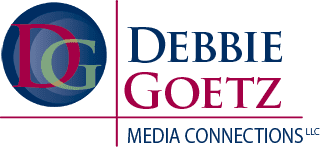How can I be viewed as an expert?
Follow current events
There is a lot going on in the world that may relate to your industry. It may be a specific time of the year, like tax season, back to school, the holiday season, Alzheimer’s Awareness Month, or it can be an event in the news. Whichever it is, you have to keep up with what is going on in your industry and in the region(s) where you operate your business so that you can be prepared to comment on something that happens that relates to your area of expertise.
What do I say?
The best way to be prepared is to write some tips about your industry or a current event that relates to your business. For example, “Three reasons to submit your taxes before April 15th” or “Ten things NOT to post on social media networks.” It isn’t just David Letterman who loves lists, the media does, too. So, if you give them a list that fits in with your business AND current events, they will be more likely to use it.
Don’t use industry specific terms
GAAP, ROI, QED… Do you know what these terms mean? Most people don’t. Use everyday language to get your point(s) across. Reading terms or acronyms you never heard of would make you stop in your tracks. Think of journalists. They have deadlines to meet, and if they come across a pitch or news release filled with terms they don’t recognize or understand, they will move on to something else. Use plain language when both speaking and putting together a pitch for the media. If your pitch is straightforward and easy to understand, it will improve your chances of getting media coverage, which in turn improves your chances of being recognized as an expert in your field.
Make sure your LinkedIn profile is set up and current
LinkedIn is a powerful tool for positioning yourself as an expert in your field. LinkedIn is a social media site focused on professional networking. Post your credentials, your work history and your special skills. Join groups in your industry that are comprised of like-minded professionals. Post discussions and interesting articles to share with other group members. If you engage others, they in turn will engage you. They may even look to you for comments on a timely topic. If you are already on LinkedIn, make sure your profile reflects your current status (i.e. lists your current position and skills that you have).
If you own your own business, set up a LinkedIn Company Page. Invite people to follow it and post timely and relevant information that will be of interest to your followers. Be sure to use “key words” in your LinkedIn profile and on your company page. Think about how people would search for a person with your expertise or a company in your industry. Build those “key words” into the profiles.
Public Speaking
I can’t emphasize enough the power and value of public speaking to enhance your credibility as an expert. Put together a presentation and speak to community or civic groups, other professionals in your field, and business groups, etc. Public speaking is an important tool that you can employ to build your professional image and credibility among your colleagues, prospects and members of the media.
Sign up for PR services
There are free services like Help a Reporter Out (HARO), Reporter Connection and Radio Guest List that will send you requests from journalists who need information ranging from “Women over 40 who started their own business” to “How parents get toddlers that are picky eaters to try new foods.” Just sign up at the prospective websites and when you receive a query in your area of expertise, respond to it in a clear, concise and timely manner.
Contact the media
It may sound obvious, but it doesn’t hurt to state it. If you have something timely to comment about, contact the members of the media that cover the beat you wish to be interviewed about. For example contact a business reporter or editor about a business related idea. Contact a food editor about a new restaurant or food product. Let him or her know that you are available as a source and that you have information that can be used immediately. Of course, don’t be surprised if they say thank you, direct you to email them something and you don’t hear back. After a few days, if you don’t hear from the reporter, call or email to follow up. Sometimes the squeaky wheel really does get the grease. Remind the reporter that you sent some information and ask if they need anything else. They may say no or they may ask you further questions. Be gracious and answer their questions.
Patience is a virtue
Remember, patience and persistence will pay off in the long run. While you might not get coverage the first time you make contact with a reporter, at the very least you have established yourself as an expert that the reporter can go to when an issue in your field comes up at a later date. That can eventually lead to opportunities for interviews in the future. And, you can be persistent without being a stalker. I generally send an email and follow up with a phone call a week later. If I don’t get a response, I send one final email just to make sure the reporter has all the information. I thank the reporter in advance for his or her consideration and I ask that he or she please keep me (or my client) in mind for future stories.
Now get out there and share what you know!

